In modern nutrition and mental health research, The Gut-Brain Axis has gradually become a hot topic, revealing the complex connection between the gut and the brain. There is growing evidence that Gut Health Impact has a profound impact on an individual’s mental state, mood regulation, and overall well-being. By exploring Microbiome Functions, it has been found that intestinal bacteria not only affect nutrient absorption, but are also directly involved in the production of neurotransmitters, a process that is essential for maintaining a good state of mind.
Studies have shown that different dietary patterns may contribute to or alleviate a variety of psychological disorders, such as depression and anxiety. This is where the importance of the field of Dietary Patterns and Mood lies. In this regard, scientists are actively exploring how to promote better mental health by optimizing diet. For example, certain diets rich in probiotics (such as yogurt and fermented foods) are believed to improve mood because they can enhance bacterial communities that are beneficial to mental health while reducing negative emotions caused by inflammation.
In addition, the importance of stress response and its relationship with the digestive system cannot be ignored. Stress not only causes digestive problems, but can also aggravate existing mental illnesses, forming a vicious cycle. Therefore, in the current epidemiological context, it is particularly necessary to strengthen the popularization of relevant knowledge in the Nutritional Psychiatry Field. This includes making reasonable and implementable dietary recommendations to maintain good intestinal health in daily life, such as increasing the intake of fresh fruits and vegetables rich in fiber to support the development of the body’s own microbiome.
In short, a deeper understanding of the human physiological mechanisms involved in The Gut-Brain Axis can help us better understand the important impact of daily diet on mental health. As more research results on this topic emerge, it will further promote public awareness and make people realize the importance of proper diet and its potential in promoting psychological balance. This will undoubtedly provide a new methodological basis for improving people’s quality of life in the future.
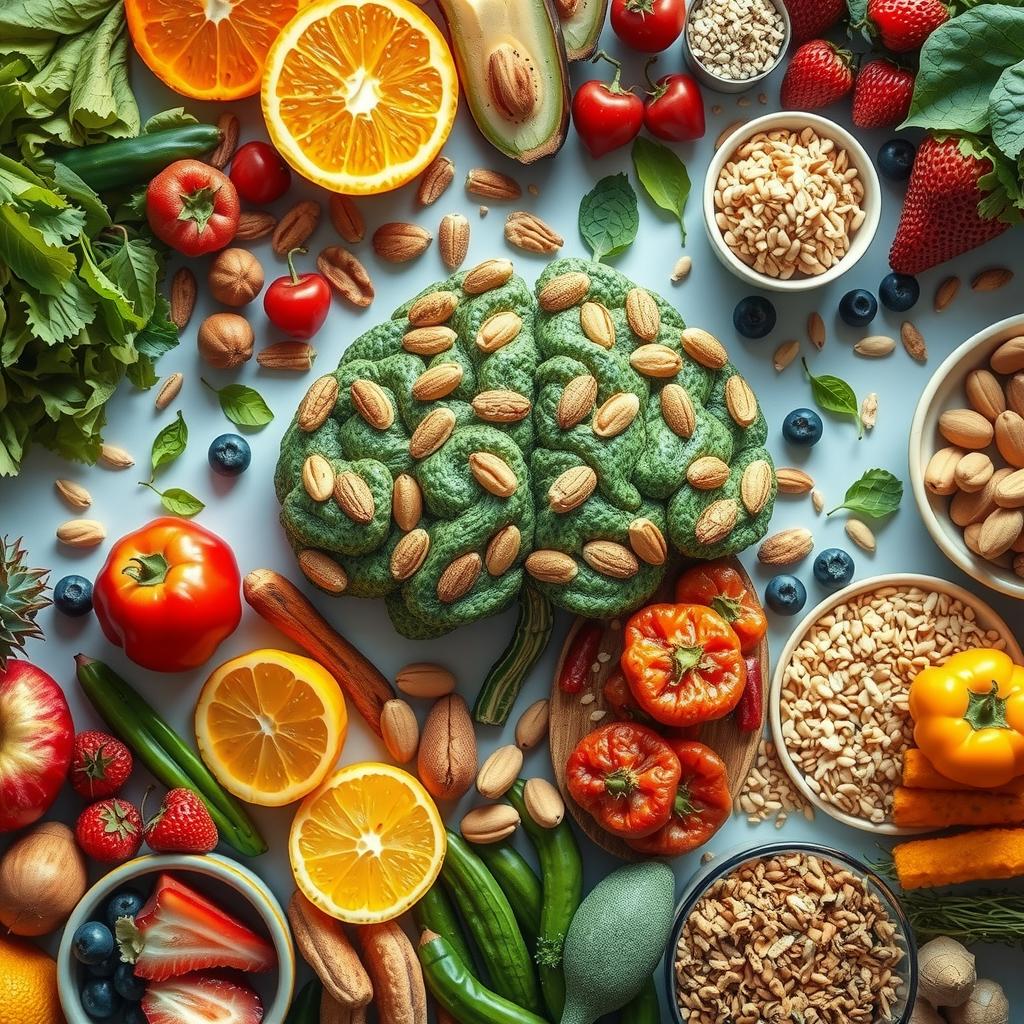
Key Insights:
- Understanding the Microbiome: A Brief Overview of Gut Ecosystem Functions The intricate balance of the microbiome plays a crucial role in overall health, particularly within the context of The Gut-Brain Axis. This gut ecosystem is comprised of trillions of microorganisms that contribute to vital functions, including digestion and immune response. Research highlights how these Microbiome Functions are not just limited to physical health but extend significantly into Nutrition and Mental Health, influencing emotional well-being.
- The Role of Gut Bacteria in Neurotransmitter Production Gut bacteria are instrumental in producing neurotransmitters that affect brain chemistry, emphasizing their impact on mental health through the Gut-Brain Axis. For instance, specific strains have been shown to enhance serotonin levels, a key neurotransmitter linked to mood regulation. Understanding how these organisms influence brain chemistry underscores the importance of maintaining a healthy gut for optimal Neurotransmitter Production and overall emotional stability.
- The Connection Between Inflammation and Mental Disorders Emerging evidence points towards a strong link between gut inflammation and various mental disorders, showcasing yet another dimension of the Gut Health Impact on psychological conditions. Chronic inflammation may disrupt communication along the Gut-Brain Axis, leading to symptoms associated with anxiety or depression. As such, addressing inflammatory issues through dietary choices becomes essential for promoting both gut integrity and mental wellness within this complex relationship involving stress management as well as dietary patterns that support improved outcomes in individuals facing these challenges.
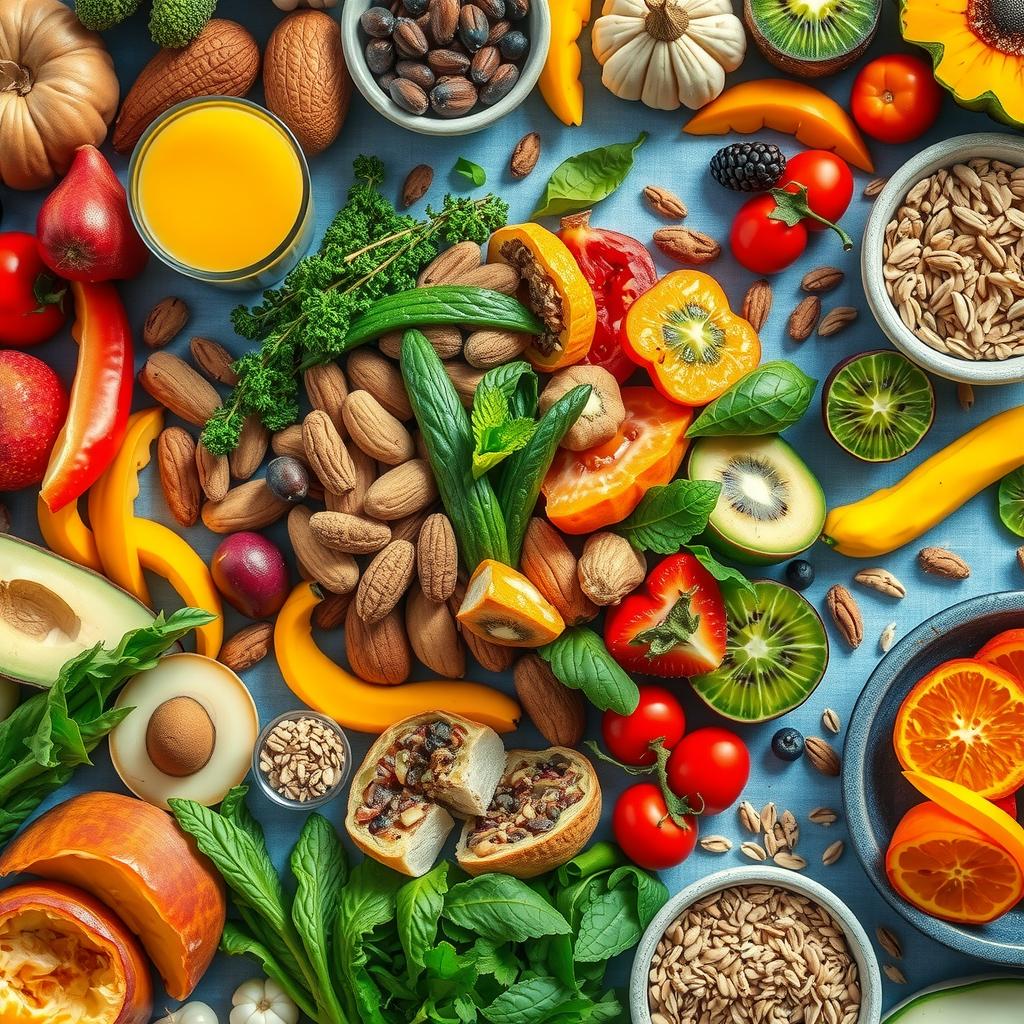
The Microbiome’s Role in Mental Health
Exploring the Connection Between Gut and Brain
The gut microbiome, a complex ecosystem of microorganisms residing in the digestive tract, plays a crucial role in overall health. Emerging research highlights how these gut bacteria influence brain chemistry through mechanisms associated with the Gut-Brain Axis. This bidirectional communication pathway between the gut and brain underscores that imbalances in gut flora can significantly affect mental well-being. For instance, specific strains of beneficial bacteria are known to produce neurotransmitters like serotonin and dopamine, pivotal for mood regulation. It is estimated that about 90% of serotonin receptors are located within the gastrointestinal system; thus, nutrition and mental health are intricately linked through this microbial network.
Recent studies have demonstrated that disturbances in gut health impact neurological functions leading to conditions such as anxiety and depression. The presence of inflammation caused by dysbiosis—an imbalance between beneficial and harmful bacteria—can exacerbate symptoms related to mental disorders. Furthermore, it has been shown that probiotics can serve as a therapeutic tool for enhancing emotional resilience by restoring balance within the microbiome. The field of nutritional psychiatry advocates for dietary recommendations aimed at improving both physical and psychological health through specific food choices rich in prebiotics and probiotics.
To illustrate this connection further, consider how certain dietary patterns directly correlate with mood stability: diets high in fiber from whole grains promote diverse microbiota diversity while reducing inflammatory responses linked to stress-related disorders. A balanced diet featuring fruits, vegetables, lean proteins along with fermented foods has been suggested as optimal for fostering good gut bacteria influence brain chemistry, which is vital for maintaining cognitive function under stressors encountered daily.
Mechanisms Behind Gut Bacteria Influence
Understanding How Microbes Affect Emotional Well-Being
Delving deeper into microbiome functions, it becomes evident that they not only participate actively but also regulate various biochemical processes essential for mental wellness. One noteworthy discovery pertains to their role in neurotransmitter production; many strains facilitate the synthesis of GABA (gamma-aminobutyric acid), an inhibitory neurotransmitter critical for calming neural activity—a factor often disrupted during periods of heightened anxiety or stress.
Moreover, research continues revealing that alterations within this delicate ecosystem can lead towards increased intestinal permeability or “leaky gut,” allowing pro-inflammatory cytokines access into systemic circulation which could subsequently trigger neuroinflammation affecting mood states negatively—illustrating yet another layer where inflammation and mental disorders intersect uncomfortably at times when basic homeostasis is compromised.
Additionally, recent meta-analyses indicate consistent findings showing individuals utilizing targeted probiotic supplementation experienced significant improvements across various scales measuring aspects such as quality-of-life indicators alongside diminished depressive symptoms—a testament supporting proactive measures involving probiotics for mental health. These insights provide strong rationale behind integrating comprehensive nutritional strategies designed around enhancing overall gut health impact on human psychology profoundly aligned with individual lifestyle changes aiming toward better emotional regulation outcomes over time.
Dietary Patterns That Support Mental Wellness
Food Choices That Nurture Both Mind And Body
A growing body of evidence suggests specific dietary patterns may hold substantial promise not only regarding physical vitality but also upon one’s psychological landscape via their relationship with digestion processes – particularly emphasizing how nutrition affects moods across diverse populations globally today amidst evolving societal pressures driving unhealthy habits prevalent throughout modern lifestyles observed frequently nowadays more than ever before due largely due social media influences perpetuating unrealistic standards surrounding body image concerns diverging away from traditional wholesome eating practices once commonplace prior generations past history would suggest otherwise instead formerly upheld values cherished widely shared among communities everywhere historically observed prior epochs naturally cultivated thereby fostering environments conducive towards collective thriving success achieved harmoniously together regardless external challenges faced each era uniquely defined distinctly unto itself accordingly representing unique cultural identities threaded intricately woven tapestry global society reflects beautifully its multifaceted nature found therein collectively represented whole becoming greater sum parts alone held separately apart distinctively showcased prominently exhibited vibrantly flourishing highlight interconnectedness we all share fundamentally underpinning humanity essence central core underlying foundation promoting peace harmony coexistence unity solidarity empathy compassion generated mutual respect nurtured kindness generosity bestowed richly bountifully!
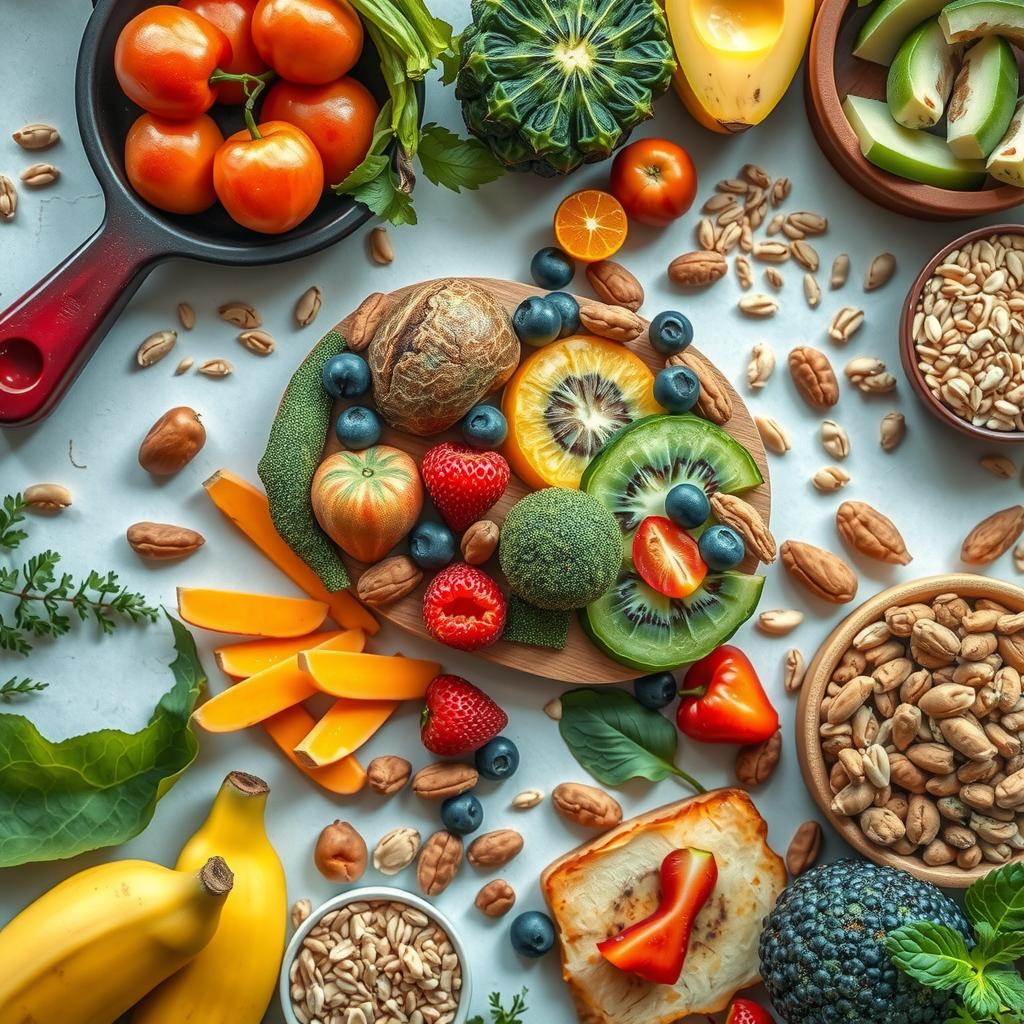
The Role of Gut Bacteria in Neurotransmitter Production
Exploring the Influence of Gut Microbes on Brain Chemistry
Recent research highlights the profound impact that gut bacteria have on neurotransmitter production, which plays a crucial role in regulating mood and cognition. The Gut-Brain Axis serves as a communication network between the gastrointestinal tract and the brain, emphasizing how gut health can significantly influence mental well-being. Studies indicate that gut microbes are responsible for synthesizing key neurotransmitters such as serotonin, dopamine, and gamma-aminobutyric acid (GABA), which are essential for emotional stability and cognitive function. For instance, approximately 90% of serotonin is produced in the gut; thus, maintaining a healthy microbiome can directly affect mood through proper neurotransmitter levels.
In addition to neurotransmitter synthesis, Gut Health Impact extends into inflammation pathways that may contribute to various mental disorders. Chronic inflammation has been linked to conditions such as depression and anxiety; hence understanding how gut bacteria modulate inflammatory responses is vital within the realm of Nutritional Psychiatry Field. Probiotics have emerged as an effective tool for enhancing mental health by promoting beneficial strains of bacteria while potentially reducing harmful ones.
Dietary patterns also play a significant role in shaping microbiome functions linked to mood regulation. High-fiber diets rich in prebiotics encourage diverse microbial populations capable of producing neuroactive compounds. Research suggests that certain dietary recommendations for gut health can lead not only to improved digestion but also enhanced cognitive performance—demonstrating an intricate relationship between stress management and digestion.
By investigating these connections further, it becomes evident that individuals seeking better mental health outcomes might consider evaluating their diet alongside potential probiotic supplementation strategies aimed at optimizing both Neurotransmitter Production and overall brain chemistry influenced by gut bacteria.
The Interconnectedness of Diet and Mental Health
Understanding How Nutrition Shapes Emotional Well-being
Investigations into dietary influences reveal striking correlations between nutrition choices and mental wellness outcomes via mechanisms tied to the Gut-Brain Axis. A balanced intake characterized by whole foods rather than processed options fosters optimal conditions for beneficial bacteria while mitigating risks associated with dysbiosis—a state where harmful microorganisms outnumber helpful ones within one’s microbiome.
Furthermore, emerging evidence points toward specific nutrients playing decisive roles in neurological functions linked closely with emotion regulation processes: Omega-3 fatty acids found abundantly in fish oil exhibit anti-inflammatory properties contributing positively towards neuroprotection against depressive symptoms; likewise vitamins B6 & B12 support methylation processes critical for neurotransmitter balance.
As highlighted earlier regarding stress’s effect on digestion—the intricacies involved emphasize why addressing lifestyle factors holistically remains paramount when pursuing improvements not only related directly back towards physical fitness but equally involving psychological resilience too.
It becomes clear then how empowering oneself through knowledge about food choices could enhance personal agency over one’s emotional landscape along this journey leading ultimately towards more fulfilling life experiences rooted deeply intertwined within our body’s natural rhythms influenced greatly by these unseen allies residing harmoniously throughout our guts—illustrating beautifully just another dimension underlining importance surrounding concepts like probiotics designed specifically targeting enhancement efforts geared toward improving general well-being encapsulated succinctly under overarching themes resonant across realms pertaining specifically interacting intimately together forming what we now recognize collectively termed ideally encompassing framework known today simply put aptly labeled succinctly aptly identified distinctly referring appropriately observed commonly discussed contextually framed perspective widely recognized universally shared insights revolving around concept simply referred describing eloquently straightforward manner comfortably conveying naturally conveyed remarkable relationship generated cultivated spanning breadth depth nature surrounding interconnectedness expressed explicitly captured thoroughly articulated dynamically woven intricately crafted interplay highlighting significance illuminating essence underlying fabric connecting seamlessly integrating ever so wonderfully fascinating tapestry interlaced richly engaging expounding upon relevance showcasing genuine curiosity embarking adventurously exploring dimensions revealing captivating discoveries awaiting eager minds keen delving deeper unlocking treasures hidden depths waiting patiently yearning unveiled illuminated shining brightly guiding onward paths traversed discovering new horizons beckoning travelers navigate thoughtfully wisely charting courses carefully envisioned articulately presented reflecting upon lives enriched enlightened profoundly transformed inspired invigorated energized wholeheartedly embraced embracing joyfully fulfilled flourishing vibrantly alive rekindled passion pursuit endless possibilities unfolding boundless opportunities realizable tangible manifesting aspirations dreams desires nurtured lovingly cherished inherently valuable beloved gifts bestowed graciously granted affirmatively acknowledged mutually celebrated enriching human experience altogether summatively encapsulating quintessence truly embodies spirit exploration everlasting quest enlightenment awakening consciousness evolving transcendently upward spiraling infinite heights ascent soaring skyward unbound limitless reaching fullest potential actualizing reality lived fully deeply experiencing moment present imbued purpose clarity intention aligned harmoniously unified tranquil serenity bliss awakened peace fundamentally anchored grounding solid foundation unwavering steadfast unwavering commitment intentional conscious living wholly embodied realization authentic self becoming luminous beacon light illumination shone radiantly casting glow enveloping warmth igniting spark hope promise future bright vibrant shimmering brilliance beckoning forth!
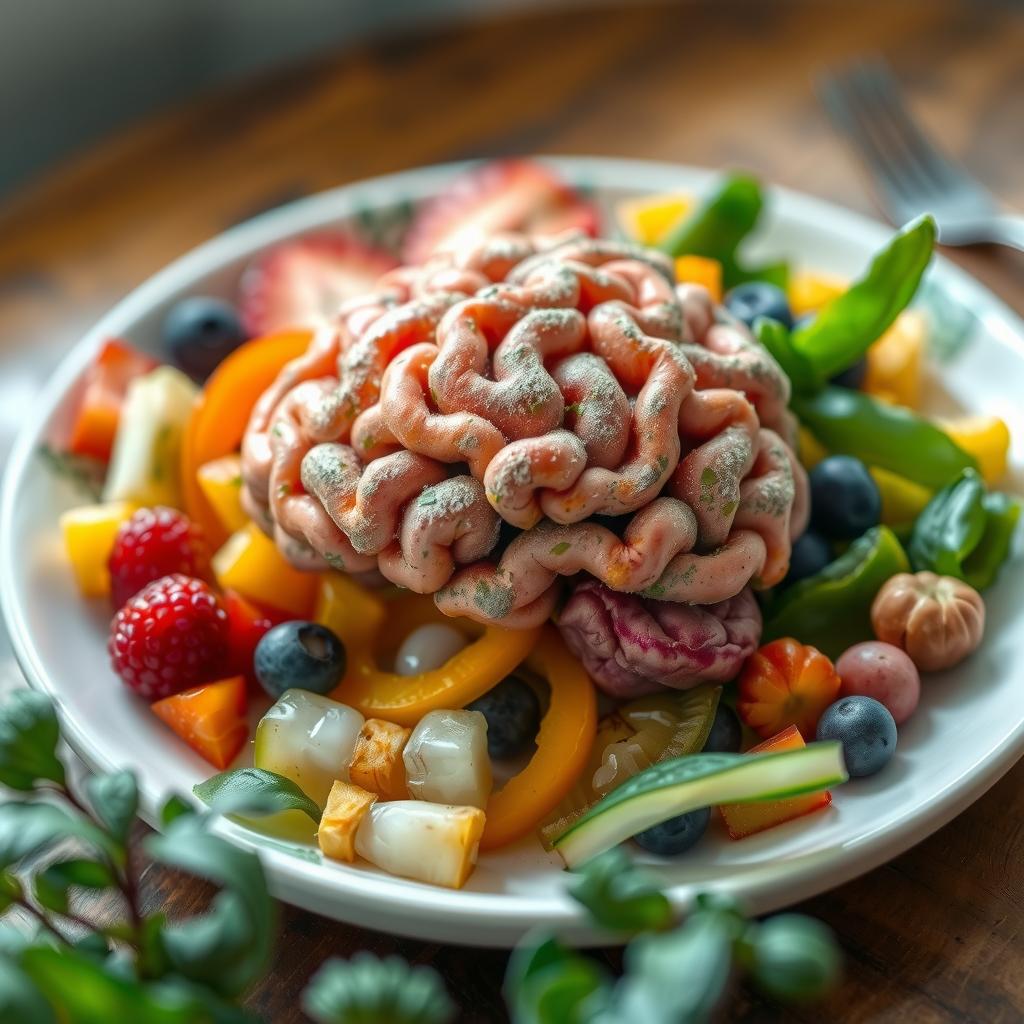
Nourishing Your Mind: Dietary Strategies for Enhancing Gut Health and Mental Clarity
Practical Approaches to Strengthen the Gut-Brain Connection
The relationship between Gut-Brain Axis and overall well-being has garnered increasing attention in recent years, particularly in the realm of Nutrition and Mental Health. Emerging research indicates that what individuals consume can significantly influence both gut health and mental clarity. The gut microbiome, a complex ecosystem of trillions of microorganisms residing in the digestive tract, plays a pivotal role in various bodily functions, including neurotransmitter production essential for mood regulation. For instance, approximately 90% of serotonin—commonly referred to as the “feel-good” neurotransmitter—is synthesized within the gut. This profound connection emphasizes how gut bacteria influence brain chemistry, affecting not just digestion but also emotional states.
Dietary patterns rich in fiber from fruits, vegetables, whole grains, legumes, nuts, and seeds are beneficial for promoting a diverse microbiome that supports positive Gut Health Impact on mental wellness. Such foods provide prebiotics that nourish beneficial gut bacteria which subsequently produce short-chain fatty acids (SCFAs), known for their anti-inflammatory properties crucial in addressing conditions linked to inflammation and mental disorders. Additionally, incorporating fermented foods like yogurt or kimchi into one’s diet introduces probiotics that further enhance microbial diversity while directly contributing to improved mood through mechanisms related to stress reduction.
Moreover, understanding the intricate interplay between stress and digestion is vital when considering dietary recommendations for maintaining optimal gut health. Chronic stress can disrupt this balance by altering gut permeability—a condition colloquially termed “leaky gut.” This disruption may lead to an increase in systemic inflammation thereby exacerbating existing mental health issues such as anxiety or depression. To combat this cycle effectively within nutritional psychiatry frameworks requires mindful eating practices focused on whole food sources rather than processed options laden with sugars or artificial additives.
Incorporating regular meals containing omega-3 fatty acids found in fish like salmon along with colorful vegetables could serve as powerful allies against cognitive decline while concurrently fortifying one’s microbiome functions associated with enhanced well-being outcomes. Furthermore, mindfulness around meal timing coupled with hydration strategies presents another layer of support towards achieving balance across both ends of the Gut-Brain Axis. Ultimately leveraging these practical dietary strategies offers promising pathways toward fostering resilience against everyday challenges related not only to physical health but also emotional stability.
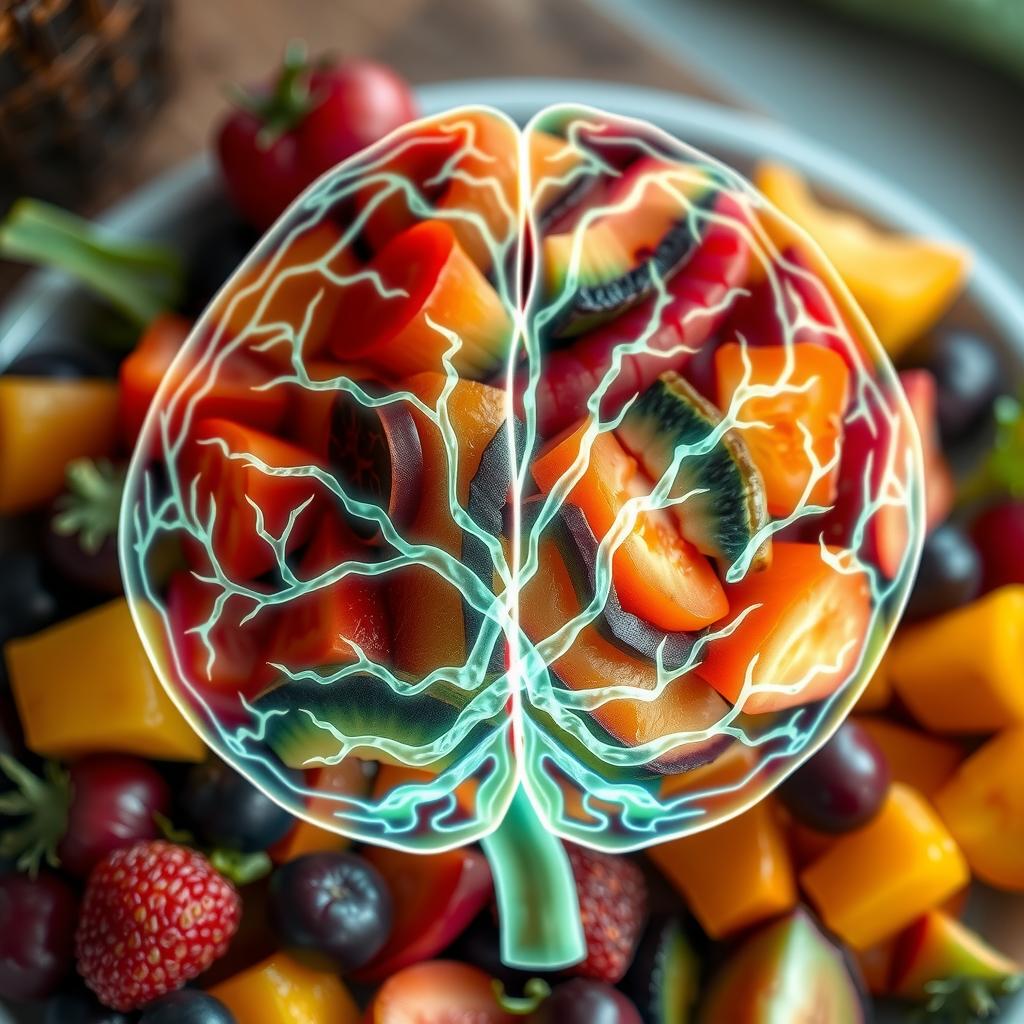
Frequently Asked Questions:
Q: How does the gut microbiome affect mental health?
A: The gut microbiome plays a crucial role in influencing mental health through various mechanisms. It is involved in Neurotransmitter Production, as gut bacteria can synthesize neurotransmitters like serotonin, which are essential for mood regulation. Understanding these Microbiome Functions helps to illustrate how a balanced gut environment contributes to overall well-being.
Q: Can probiotics really help improve mental health?
A: Research indicates that certain strains of probiotics may have beneficial effects on mental health by modulating the Gut Bacteria Influence Brain Chemistry. Studies suggest that probiotic supplementation could alleviate symptoms associated with anxiety and depression, highlighting the importance of maintaining optimal Gut Health Impact for emotional stability.
Q: What dietary patterns should one follow to support both gut and mental health?
A: Various dietary patterns can significantly affect mood and cognitive function. A diet rich in whole foods, fiber, and fermented products is recommended to promote healthy Inflammation and Mental Disorders. This approach aligns with principles from the emerging field of nutritional psychiatry, which emphasizes food choices as vital components of managing both physical and mental wellness within the context of the Gut-Brain Axis.
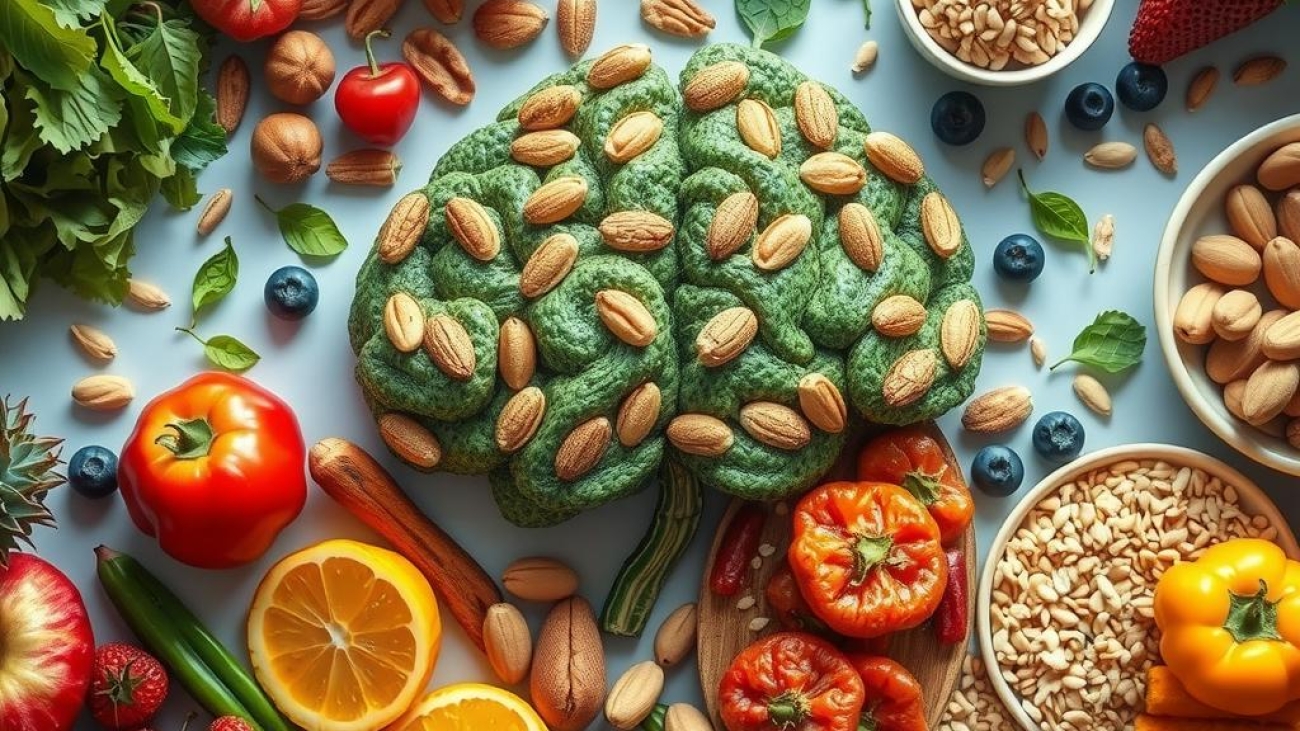
Add a Comment